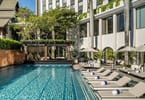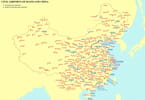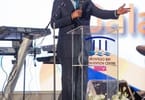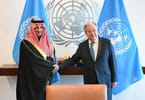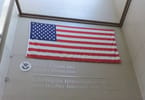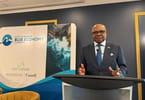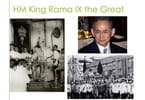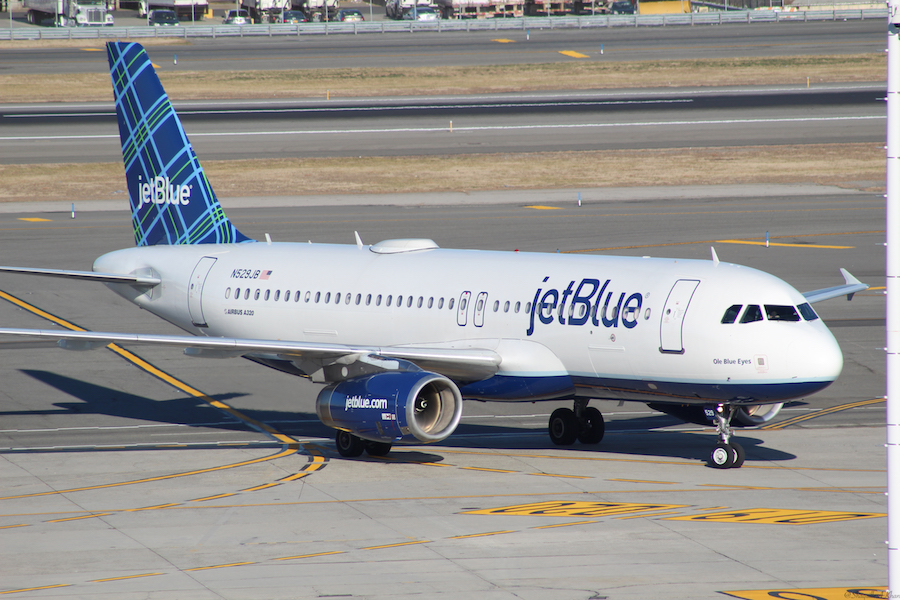There’s been a lot of confusion in the media this week about whether or not Queen Elizabeth 2 and two Holland America Line cruise ships will be allowed to serve as floating hotels in Cape Town, South Africa, during the 2010 Federation Internationale de Football Association (FIFA) World Cup, which takes place in June and July next year.
According to a statement by South African Tourism, some 630,000 tickets — considered a massive demand — have already been sold to date. It is anticipated that some 450,000 overseas visitors will travel to South Africa during the tournament. Up to 100,000 of them will be Brits.
But here’s the question: Does the Cape Town area have enough hotel rooms to accommodate the mass influx of football fans? Although South African Minister of Tourism, Marthinus van Schalkwyk, is on record as saying that South Africa has enough accommodation for 2010, FIFA’s president, Sepp Blatter, is also on record claiming that there will be a shortage of up to 15,000 rooms for the tournament.
Using cruise ships to provide extra beds at huge sporting events is not a new idea. At the Athens Olympics in 2004, 11 ships provided accommodation for 10,000 people. NCL’s Norwegian Star has already been chartered for the 2010 Winter Olympics in Vancouver as a floating hotel for 8,960 fans over the duration of the Games.
So, for QE2, sold last year by Cunard to Dubai-based Nakheel, moving the ship to Cape Town for the 2010 World Cup games seemed like a great opportunity.
Originally, the plan was for QE2 to serve as a hotel and attraction in Dubai. With recession taking its grip in the Emirate, cash-strapped Nakheel announced plans in the summer to move the ship to Cape Town until after the football tournament to raise some much-needed revenue. The link here is that Nakheel’s holding company, Dubai World, owns the city’s famous Victoria and Alfred Waterfront.
But politicians in South Africa are up in arms about the possibility of the QE2 stealing revenue from local hoteliers. Eliza van Lingen, a member of South Africa’s opposition Democratic Alliance party, said this week, according to reports in the South African press: “Instead of bringing in the QE2, we should be looking at getting more local and township accommodation service providers on board. That vessel will be shipping a lot of money out of this country.”
In response, the official Nakheel statement provided to Cruise Critic argued that “As a stationary hotel, QE2 will bring significant tourism, employment and business benefits to South Africa and, as she will be run as a local enterprise by a local operator, she will also bring additional tax revenue to the country. Profit generated from the ship will remain in South Africa and will benefit the South African economy.”
The plan certainly has some backing. A spokesman for South Africa’s Department of Tourism says that the Department has decided “not to oppose the application for the berthing of the QE2 in Cape Town,” although the final decision rests with the Transnet Board, which controls the National Ports Authority.
And this is where Nakheel has come up against the next barrier. According to South Africa’s Cape Argus newspaper, the port manager, Sanjay Govan, has told Nakheel that there is no space for QE2 for a long-term mooring.
Negotiations between Transnet and Nakheel continue. Meanwhile, work continues apace on QE2; she’s currently in dry dock in the United Arab Emirates, where work is being done on the hull in preparation for the voyage to South Africa.
There’s been further controversy over the presence during the tournament of Holland America Line’s Westerdam and Noordam, which have been chartered by a German company to accommodate fans during the tournament. But South African officials don’t feel the same antipathy in this case.
The Department of Tourism issued a statement to Cruise Critic that said that “A distinction is drawn between cruise liners used as illustrated above and cruise liners entering South African waters during the World Cup with passengers on board and weighing anchor here during the event. Two cruise liners, the Westerdam and the Noordam, bringing tourists into the country, have already been approved by the ports authorities to enter South African waters on this basis during the World Cup. We regard this as part of the normal activity of the cruise liner industry.”
هن آرٽيڪل مان ڇا وٺو:
- In response, the official Nakheel statement provided to Cruise Critic argued that “As a stationary hotel, QE2 will bring significant tourism, employment and business benefits to South Africa and, as she will be run as a local enterprise by a local operator, she will also bring additional tax revenue to the country.
- There’s been a lot of confusion in the media this week about whether or not Queen Elizabeth 2 and two Holland America Line cruise ships will be allowed to serve as floating hotels in Cape Town, South Africa, during the 2010 Federation Internationale de Football Association (FIFA) World Cup, which takes place in June and July next year.
- Although South African Minister of Tourism, Marthinus van Schalkwyk, is on record as saying that South Africa has enough accommodation for 2010, FIFA’s president, Sepp Blatter, is also on record claiming that there will be a shortage of up to 15,000 rooms for the tournament.



